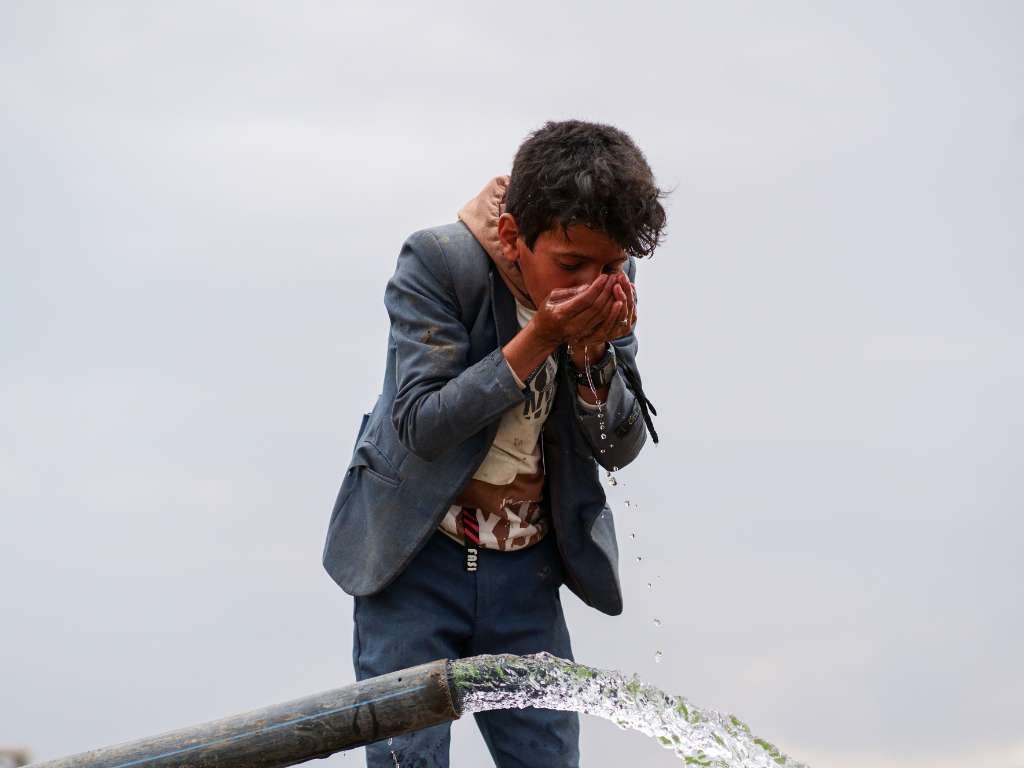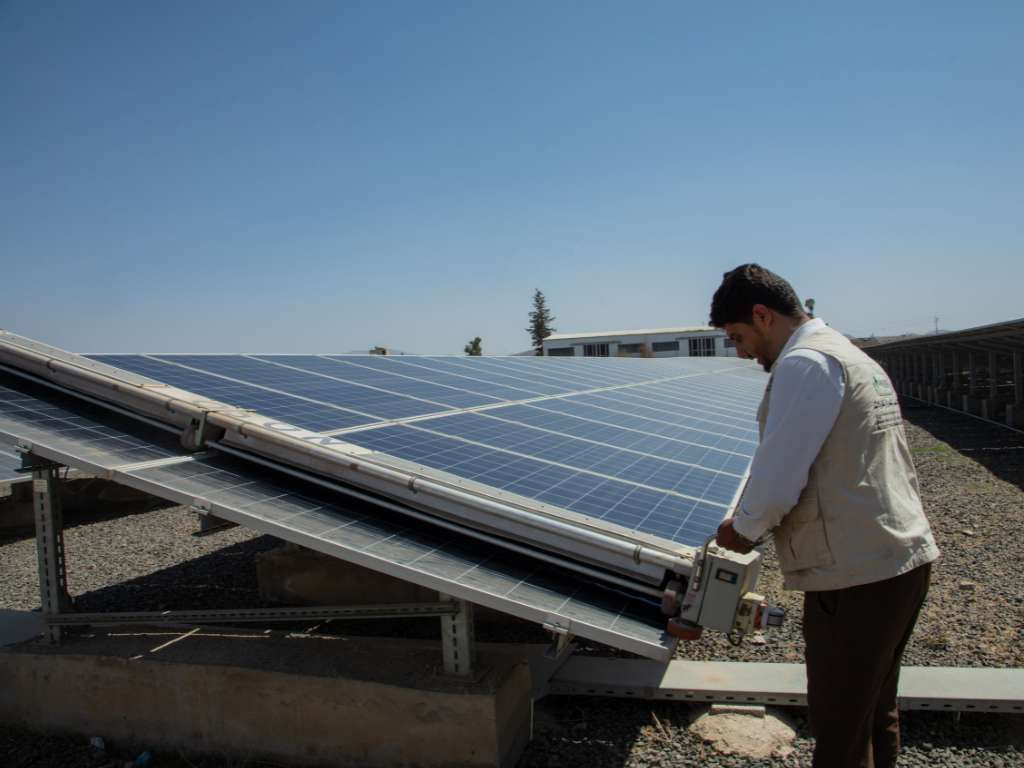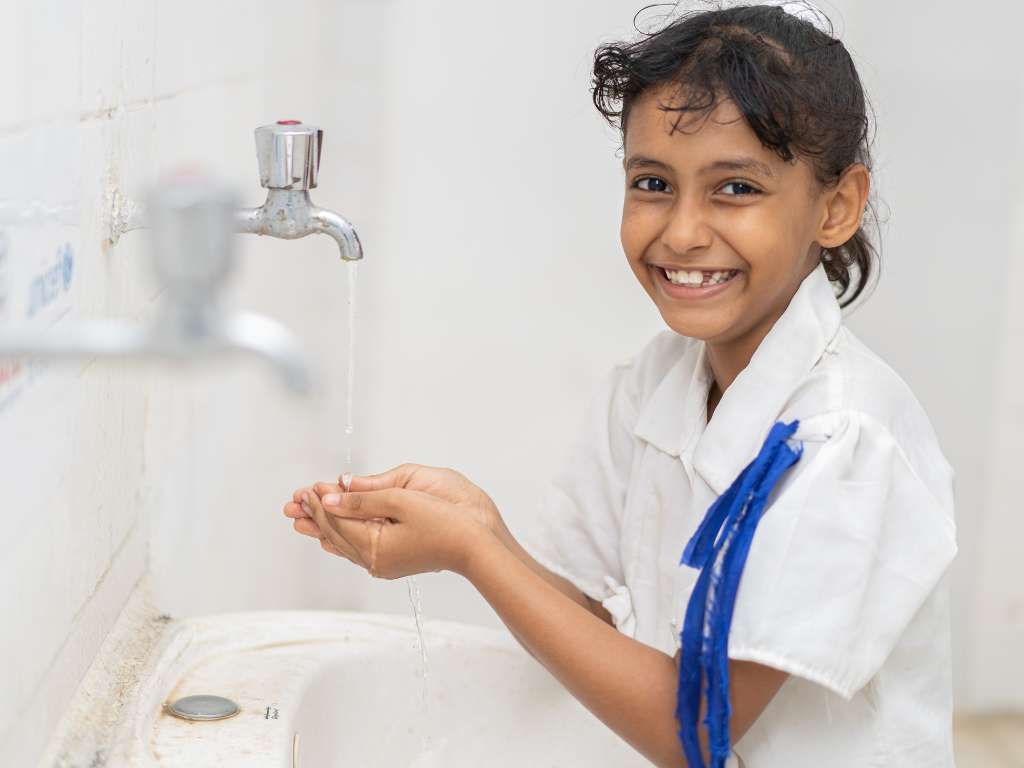Clean water for children: Now and in the future
When the conflict broke out, we barely escaped with our lives. We fled to Dhamar, but often we didn’t have potable water. My wife, my children, and I all got sick.
Life was already challenging for Nabil and his family before the civil war started in Yemen. But since the civil war threw the country into chaos, life has been exponentially harder for them all. Basic services, including water, collapsed and families like Nabil’s relied entirely on outside support. Forced to rely on contaminated water from a truck, Nabil came close to losing his beloved son Mohammed to cholera.
Against a backdrop of conflict and climate change, Yemen remains one of the most water-scarce countries on earth. But thanks to support from donors like you, UNICEF is working on installing solar-powered water systems across Yemen in places like Ibb and Al-Dale'e Governorates. So far, we have reached as many as 2.5 million people, including in schools and health centers, with clean water.
For children in countries like Yemen, Somalia and Syria, regular access to clean water means protection against water-borne diseases and a chance to go back to school, instead of spending their days fetching water.
With a gift today, you can help reach more children who need clean water in Yemen. Please donate now!
The UNICEF difference
In Yemen and around the world, UNICEF is driving climate action by supporting more sustainable and long-term solutions like solar-powered water systems. The innovative systems ensure safe water supplies for 2.5 million people, while also reducing Yemen’s reliance on fossil fuels and investing in the local economy.
Your gift of any amount will make a long-lasting difference for children and their families in who have endured so much.

1,855 solar water systems constructed in 2022,
providing safe water to communities, health-care facilities and schools,

Over 23 million people
reached with water, sanitation, and hygiene (WASH) services in humanitarian situations around the world in 2022.

2 billion people
gained access to safe drinking water in the last two decades, reducing child mortality and morbidity rates worldwide.
Your financial support will help to…

During a cholera outbreak, access to clean water helped reduce the percentage of people impacted by acute diarrhea, which in children leads to malnutrition.

Across the world, UNICEF is driving climate action by supporting more sustainable and long-term solutions like solar-powered water systems.

Increasing access to clean water directly correlates to lower school dropout rates, especially among girls who are often responsible for fetching water.
Every gift – big or small – helps make a difference for children and their families in Yemen and around the world.